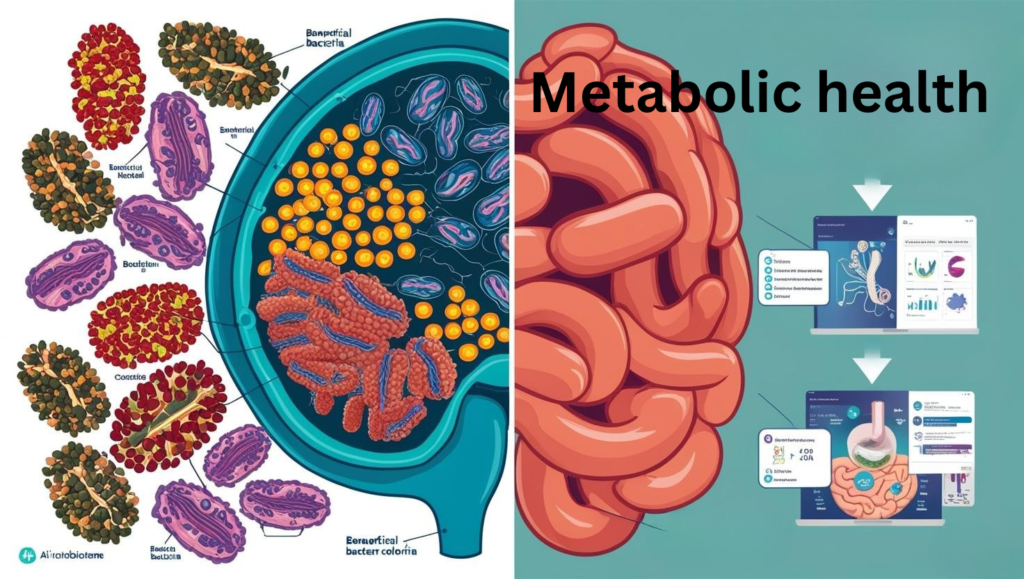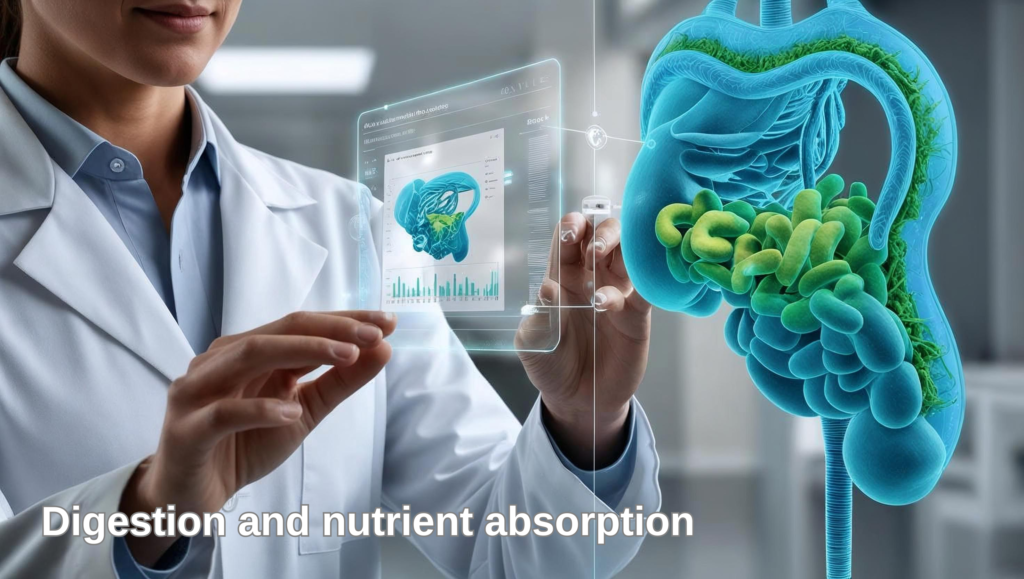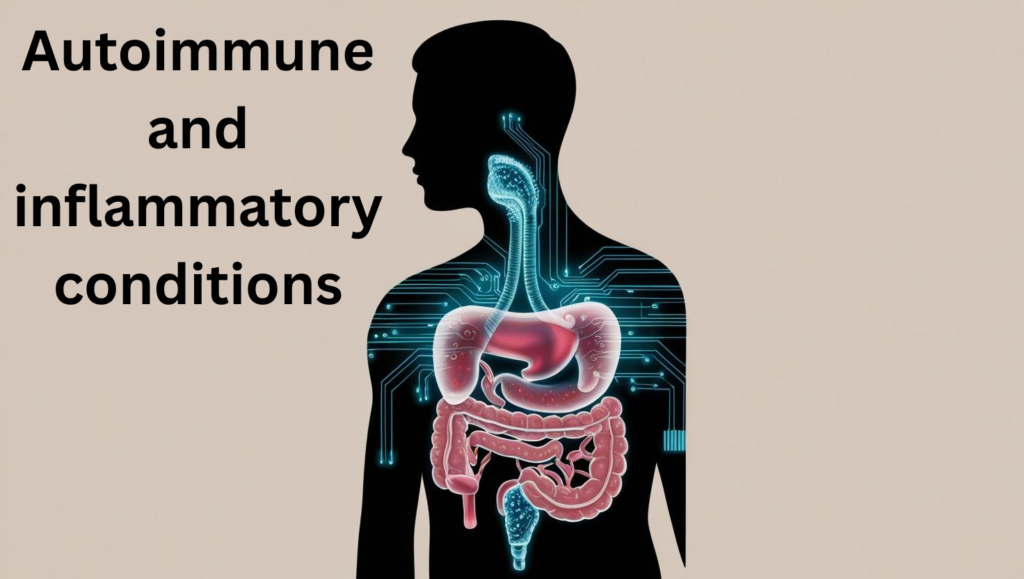
Revolutionizing Health: Advancements in Gut Microbiome Research and AI Innovations
Advancements in Gut Microbiome Advancements Research and AI Innovations
Introduction
The human gut microbiome, a complex ecosystem of trillions of microorganisms, plays a crucial role in our overall health. Recent gut microbiome advancements and artificial intelligence (AI) innovations are revolutionising our understanding of this intricate system. This article delves into the latest breakthroughs, applications, and prospects in this exciting field of gut microbiome advancements.Revolutionizing Health: Advancements in Gut Microbiome Research and AI Innovations”
Why the Gut Microbiome Matters
“Revolutionizing Health: Advancements in Gut Microbiome Research and AI Innovations”
The gut microbiome influences nearly every aspect of health, including:

- Digestion and nutrient absorption
- Immune system regulation
- Mental health (via the gut-brain axis)
- Metabolic health (obesity, diabetes)
- Autoimmune and inflammatory conditions
1. The Gut Microbiome: A Brief Overview
Revolutionizing Health: Advancements in Gut Microbiome Research and AI Innovations”
The gut microbiome consists of bacteria, viruses, fungi, and other microorganisms in our digestive tract. These microbes influence various aspects of health, including digestion, immunity, and even mental health. Understanding the gut microbiome’s composition and function is essential for developing targeted therapies and personalised medicine.
2. Recent Advancements in Gut Microbiome Research
Revolutionizing Health: Advancements in Gut Microbiome Research and AI Innovations”
In recent years, significant progress has been made in gut microbiome research thanks to advanced sequencing technologies and computational tools. Key advancements include:
2.1. High-Throughput Sequencing
Revolutionising Health: Advancements in Gut Microbiome Research and AI Innovations”
High-throughput sequencing technologies, such as 16S rRNA sequencing and shotgun metagenomics, have enabled researchers to analyse the gut microbiome’s composition and function with unprecedented precision. These techniques provide insights into the diversity and abundance of microbial species and their metabolic activities.
Exploring the Impact of AI on Gut Microbiome Research
2.2. Metabolomics and Proteomics

Revolutionizing Health: Advancements in Gut Microbiome Research and AI Innovations”
Metabolomics and proteomics are emerging fields that study the metabolites and proteins produced by gut microbes. These approaches help researchers understand how microbial metabolites influence host physiology and contribute to health and disease.
2.3. Functional Studies
Revolutionizing Health: Advancements in Gut Microbiome Research and AI Innovations”
Functional studies, including gnotobiotic models and fecal microbiota transplantation (FMT), have provided valuable insights into the causal relationships between gut microbes and host health. These studies have identified specific microbial strains and metabolites that play key roles in obesity, inflammatory bowel disease (IBD), and neurological disorders.
3. AI Innovations in Gut Microbiome Research
Revolutionizing Health: Advancements in Gut Microbiome Research and AI Innovations”
Artificial intelligence (AI) is transforming gut microbiome research by enabling the analysis of complex datasets and the development of predictive models. Key AI innovations include:
3.1. Machine Learning Algorithms
Machine learning algorithms are being used to analyze large-scale microbiome datasets and identify patterns associated with health and disease. These algorithms can predict disease risk, classify microbial communities, and identify potential therapeutic targets.
3.2. Deep Learning Models
Deep learning models, such as convolutional neural networks (CNNs) and recurrent neural networks (RNNs), are being applied to microbiome data to uncover complex relationships between microbial species and host phenotypes. These models have shown promise in predicting disease outcomes and guiding personalized treatment strategies.
3.3. Natural Language Processing (NLP)
Natural language processing (NLP) techniques are being used to extract valuable information from scientific literature and clinical notes. NLP can help researchers stay updated with the latest findings and identify potential research gaps.
4. Applications of Gut Microbiome Research and AI Innovations
Revolutionizing Health: Advancements in Gut Microbiome Research and AI Innovations”
Integrating gut microbiome research and AI innovations has led to numerous healthcare applications. Key applications include:
4.1. Personalized Nutrition
AI-driven microbiome analysis can provide personalized dietary recommendations based on an individual’s gut microbiome composition. This approach has the potential to improve metabolic health, manage weight, and prevent diet-related diseases.
4.2. Disease Diagnosis and Prognosis
Machine learning models are being developed to diagnose and predict the progression of various diseases based on gut microbiome data. These models can identify microbial biomarkers associated with conditions such as colorectal cancer, diabetes, and autism spectrum disorder (ASD).
4.3. Therapeutic Interventions
AI-powered microbiome analysis is guiding the development of novel therapeutic interventions, including probiotics, prebiotics, and FMT. These interventions aim to restore a healthy gut microbiome and treat conditions such as IBD, irritable bowel syndrome (IBS), and Clostridioides difficile infection (CDI).
4.4. Drug Discovery
AI is accelerating drug discovery by identifying microbial metabolites and pathways that can be targeted for therapeutic purposes. This approach has the potential to develop new antibiotics, anti-inflammatory drugs, and other treatments.
5. Challenges and Future Directions

Revolutionizing Health: Advancements in Gut Microbiome Research and AI Innovations”
Despite the significant progress in gut microbiome research and AI innovations, several challenges remain. Key challenges include:
5.1. Data Integration and Standardization
Integrating and standardizing data from different sources is a major challenge in microbiome research. Developing standardized protocols and data-sharing platforms will be essential for advancing the field.
5.2. Ethical and Privacy Concerns
evolutionizing Health: Advancements in Gut Microbiome Research and AI Innovations”
The use of AI in microbiome research raises ethical and privacy concerns, particularly regarding collecting and using personal health data. Addressing these concerns will be crucial for gaining public trust and ensuring the responsible use of AI technologies.
evolutionizing Health: Advancements in Gut Microbiome Research and AI Innovations”
Translating microbiome research findings into clinical practice is a complex process that requires rigorous validation and regulatory approval. Collaborative efforts between researchers, clinicians, and industry stakeholders will be essential for bridging the gap between research and application.
5.4. Future Prospects
Revolutionizing Health: Advancements in Gut Microbiome Research and AI Innovations”
The future of gut microbiome research and AI innovations is promising, with potential breakthroughs in personalised medicine, disease prevention, and therapeutic development. Continued investment in research, technology, and collaboration will be key to unlocking this field’s full potential.
Conclusion

Revolutionizing Health: Advancements in Gut Microbiome Research and AI Innovations”
Advancements in gut microbiome research and AI innovations are transforming our understanding of human health and disease. By leveraging cutting-edge technologies and interdisciplinary approaches, researchers uncover new insights into the gut microbiome’s role in health and develop innovative solutions for personalised medicine and therapeutic interventions. As the field evolves, integrating gut microbiome research and AI will undoubtedly lead to groundbreaking discoveries and improved healthcare outcomes.
Q&A: Evolutionizing Health: Advancements in Gut Microbiome Research and AI Innovations”
Q1: How does AI enhance gut microbiome research?
A1: AI accelerates gut microbiome research by analyzing vast datasets from sequencing technologies (e.g., 16S rRNA, metagenomics) to identify microbial patterns linked to health or disease. Machine learning algorithms classify microbial communities, predict disease risks, and uncover therapeutic targets. For example, AI models can correlate specific bacterial strains with conditions like obesity or inflammatory bowel disease (IBD), enabling faster and more precise insights than traditional methods.
Q2: What role do microbial metabolites play in human health?
A2: Microbial metabolites—chemicals produced by gut bacteria—directly influence host physiology. For instance, short-chain fatty acids (SCFAs) like butyrate support gut barrier integrity and reduce inflammation, while imbalances in metabolites like trimethylamine N-oxide (TMAO) are linked to cardiovascular disease. AI-driven metabolomics helps map these interactions, revealing how diet, probiotics, or drugs could modulate metabolite production for better health outcomes.
Q3: Can AI personalize treatments based on gut microbiome data?
A3: Yes! AI-powered tools analyze individual microbiome profiles to tailor interventions. For example, personalized nutrition platforms use machine learning to recommend diets that optimize gut health, while AI-guided fecal microbiota transplantation (FMT) selects donor samples most likely to restore a patient’s microbial balance. Such approaches are already being tested for conditions like IBS, diabetes, and even mental health disorders.
Q4: What are the ethical concerns around AI and microbiome data?
A4: Key concerns include data privacy (e.g., securing sensitive health information), algorithmic bias (e.g., models trained on non-diverse populations), and informed consent for microbiome-based therapies. Regulatory frameworks must evolve to ensure transparency in AI decision-making and equitable access to emerging treatments like microbiome-modulating drugs or diagnostics.
Q5: How might gut microbiome-AI innovations transform future healthcare?
A5: The synergy of gut microbiome research and AI could revolutionise healthcare by enabling:
- Early disease detection: AI identifies microbial biomarkers for cancers or autoimmune diseases years before symptoms appear.
- Precision probiotics: Engineered microbial cocktails target specific health issues, from obesity to depression.
- Automated diagnostics: Portable devices analyze stool samples in real time, powered by AI algorithms.
- Drug discovery: AI screens microbial metabolites for novel antibiotics or anti-inflammatory compounds.
Q6: What challenges hinder progress in this field?
A6: Major challenges include:
- Data standardisation: Lack of unified protocols for microbiome data collection and analysis.
- Complexity of host-microbe interactions: The gut microbiome’s dynamic nature makes causality hard to establish.
- Clinical translation: Moving from lab discoveries to FDA-approved therapies requires rigorous trials and funding.
- Public awareness: Educating patients and clinicians about microbiome-based treatments remains critical.
Q7: Are there real-world applications of AI-gut microbiome integration today?
A7: Absolutely! Examples include:
- Viome: Uses AI to analyze gut microbiome data and provide personalized dietary recommendations.
- Finch Therapeutics: Develops microbiome therapies for conditions like C. difficile infection using machine learning.
- DayTwo: Leverages AI to predict blood sugar responses based on gut microbiota, aiding diabetes management.
Q8: How could this research impact mental health treatments?
A8: The “gut-brain axis” links microbiome health to neurological conditions like depression and anxiety. AI models analyse microbial data to identify strains that produce neurotransmitters (e.g., serotonin) or influence inflammation. Future therapies might include psychobiotics—probiotics tailored to improve mental health—guided by AI-driven insights.



Pingback: 5 Best Healthy Habits for Busy Professionals - mysproutapp.com